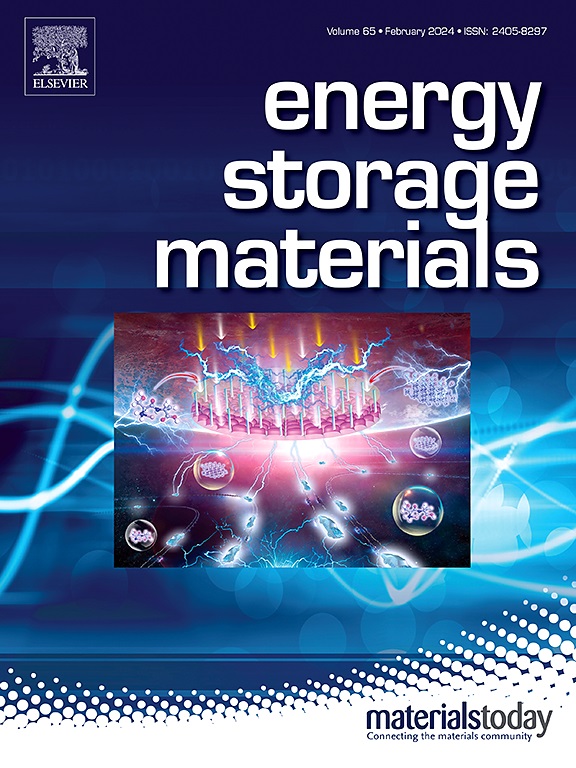Multifunctional Zeolites for Rechargeable Lithium-Based Batteries: Progress and Perspectives
IF 18.9
1区 材料科学
Q1 CHEMISTRY, PHYSICAL
引用次数: 0
Abstract
As a representative electrochemical energy storage technology, rechargeable lithium (Li)-based batteries, such as lithium-ion batteries, lithium-oxygen batteries, lithium-sulfur batteries, and lithium metal batteries, are being intensively investigated. However, many issues, such as the dissolution of transition-metal ions, the shuttle effect of redox mediators and polysulfides, and slow ionic conduction in solid electrolytes, persist in these batteries, leading to the degradation of their electrochemical performance. Zeolites, with their various channel/pore structures, possess many advantages, including excellent molecular sieving capability, high cost-effectiveness, and efficient adsorption abilities. Therefore, these multifunctional materials are highly promising for addressing the challenges faced by rechargeable Li-based batteries. In this review, we summarize the recent progress in the application of multifunctional zeolites for Li-based batteries. We then thoroughly discuss the roles of zeolites that are crucial for enhancing the electrochemical performance of these batteries. Finally, we provide insightful perspectives on the development of high-performance zeolites for Li-based batteries. This review offers guidance for improving the electrochemical performance of Li-based batteries and other electrochemical energy storage devices by implementing zeolites with novel properties.

用于可充电锂基电池的多功能沸石:进展与展望
锂离子电池、锂氧电池、锂硫电池、锂金属电池等可充电锂基电池作为电化学储能技术的代表,正在得到广泛的研究。然而,过渡金属离子的溶解、氧化还原介质和多硫化物的穿梭效应以及固体电解质中离子传导缓慢等问题一直存在,导致这些电池的电化学性能下降。分子筛具有多种通道/孔结构,具有优异的分子筛分能力、较高的成本效益和高效的吸附能力等优点。因此,这些多功能材料非常有希望解决可充电锂基电池面临的挑战。本文综述了多功能沸石在锂基电池中的应用研究进展。然后,我们深入讨论了沸石对提高这些电池的电化学性能至关重要的作用。最后,我们对高性能锂基电池沸石的发展提出了有见地的观点。本文综述为利用新型性质的沸石提高锂基电池和其他电化学储能装置的电化学性能提供了指导。
本文章由计算机程序翻译,如有差异,请以英文原文为准。
求助全文
约1分钟内获得全文
求助全文
来源期刊

Energy Storage Materials
Materials Science-General Materials Science
CiteScore
33.00
自引率
5.90%
发文量
652
审稿时长
27 days
期刊介绍:
Energy Storage Materials is a global interdisciplinary journal dedicated to sharing scientific and technological advancements in materials and devices for advanced energy storage and related energy conversion, such as in metal-O2 batteries. The journal features comprehensive research articles, including full papers and short communications, as well as authoritative feature articles and reviews by leading experts in the field.
Energy Storage Materials covers a wide range of topics, including the synthesis, fabrication, structure, properties, performance, and technological applications of energy storage materials. Additionally, the journal explores strategies, policies, and developments in the field of energy storage materials and devices for sustainable energy.
Published papers are selected based on their scientific and technological significance, their ability to provide valuable new knowledge, and their relevance to the international research community.
 求助内容:
求助内容: 应助结果提醒方式:
应助结果提醒方式:


